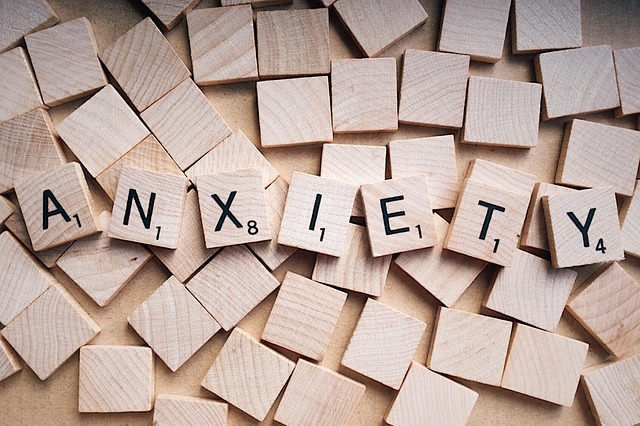Englewood Eating Disorders Therapy offers a comprehensive approach to crisis intervention and recovery. By prioritizing individual understanding, evidence-based practices, and cultural sensitivity, they ensure early identification of red flags. Their specialized programs focus on coping skill development, burnout prevention for professionals, and creating safe spaces for open communication. Using empathy and mind-over-matter techniques, therapists guide clients towards recovery, empowering them with lasting strategies for a healthier relationship with food and their bodies. Post-crisis care emphasizes self-care, mindfulness, and conflict resolution to prevent recurrence and promote overall well-being.
“Englewood Eating Disorders Therapy serves as a beacon of hope, offering specialized crisis intervention strategies that are pivotal in managing eating disorders. This comprehensive guide explores key aspects of crisis support, from identifying red flags for early detection to evidence-based practices tailored to complex cases. We delve into immediate support techniques, post-crisis care, and the overall approach at Englewood, providing insights into how our therapy center guides individuals towards recovery.”
- Understanding Crisis Intervention: A Cornerstone of Eating Disorders Therapy at Englewood
- Identifying Red Flags: Early Detection for Effective Interventions
- Strategies for Immediate Support: Creating a Safe Space at Englewood Eating Disorders Therapy
- Evidence-Based Practices: Navigating Complex Behaviors and Thoughts
- Post-Crisis Care: Preventing Recurrence and Promoting Recovery
Understanding Crisis Intervention: A Cornerstone of Eating Disorders Therapy at Englewood

At Englewood, we recognize that crisis intervention is a cornerstone of effective eating disorders therapy. Our approach is deeply rooted in understanding the unique and complex needs of individuals struggling with these conditions. Crisis intervention strategies are vital to providing immediate support and guiding clients towards long-term recovery. Through tailored Mental Wellness Coaching Programs Development, our skilled therapists assist clients in developing coping skills that enhance their emotional intelligence and resilience.
This guidance involves a comprehensive assessment of each individual’s situation, followed by the implementation of evidence-based practices. By fostering an environment of safety and non-judgment, we empower clients to navigate challenging situations effectively. Our focus on Coping Skills Development enables individuals to manage crises proactively, ensuring their mental wellness and promoting a healthier relationship with food and their body.
Identifying Red Flags: Early Detection for Effective Interventions

Early identification of red flags is a cornerstone of effective crisis intervention strategies. Individuals struggling with mental health issues like eating disorders often present subtle signs that, if recognized, can prevent escalation and guide toward timely, appropriate support. At Englewood Eating Disorders Therapy, we emphasize the importance of educating communities – both within healthcare settings and beyond – to detect these red flags.
Cultural sensitivity in mental healthcare practice plays a vital role in this process. Understanding individual and cultural nuances enables providers to interpret behaviors accurately and avoid misdiagnosis. Burnout prevention strategies for healthcare providers are also crucial, as fatigue and stress can impair their ability to recognize warning signs effectively. By prioritizing self-care and staying attuned to their own emotional well-being, mental health professionals can maintain the keen awareness needed to identify red flags and offer timely intervention, ultimately fostering a more supportive environment for those facing crises like depression prevention and eating disorders.
Strategies for Immediate Support: Creating a Safe Space at Englewood Eating Disorders Therapy

At Englewood Eating Disorders Therapy, immediate support strategies are designed to create a safe and nurturing environment for individuals in crisis. The first step involves actively listening to the person in distress, validating their feelings, and ensuring they feel heard and understood. This empathetic approach builds a foundation of trust, encouraging open communication about their struggles with eating disorders.
By fostering an atmosphere of acceptance and non-judgment, Englewood Eating Disorders Therapy implements effective crisis intervention guidance. Trained therapists utilize empathy building strategies to help clients explore the underlying causes of their distress, promoting self-awareness and empowerment. Additionally, they integrate mind over matter principles, teaching clients coping mechanisms that focus on reframing thoughts, challenging negative beliefs, and cultivating a positive mindset, all of which are crucial in the journey towards recovery.
Evidence-Based Practices: Navigating Complex Behaviors and Thoughts

Post-Crisis Care: Preventing Recurrence and Promoting Recovery

Post-crisis care plays a pivotal role in preventing recurrence and fostering recovery. Following an eating disorder crisis, individuals often require comprehensive support to navigate the path to long-term healing. At Englewood Eating Disorders Therapy, we understand that this process demands tailored strategies to address unique challenges. One key aspect is encouraging the development of a robust self-care routine for better mental health. This includes incorporating healthy habits like regular exercise, mindfulness practices, and effective stress management techniques. By nurturing self-compassion and cultivating inner resilience, individuals can enhance their coping mechanisms and reduce the risk of future episodes.
Additionally, conflict resolution techniques and compassion cultivation practices are integral to post-crisis care. Learning constructive ways to navigate interpersonal conflicts can create a safer emotional environment, encouraging open communication and understanding. Compassion cultivation helps individuals foster empathy, both for themselves and others, leading to improved relationships and overall well-being. These strategies collectively contribute to a robust recovery framework, aiming to empower individuals to lead fulfilling lives free from the confines of eating disorders.
Englewood Eating Disorders Therapy provides a comprehensive crisis intervention approach, encompassing early detection, immediate support, evidence-based practices, and post-crisis care. By understanding the red flags and implementing effective strategies, as outlined in this guide, individuals can play a vital role in preventing eating disorder crises and promoting recovery. Englewood’s commitment to these life-saving interventions ensures that those struggling with eating disorders receive the comprehensive support they need to heal and thrive.














